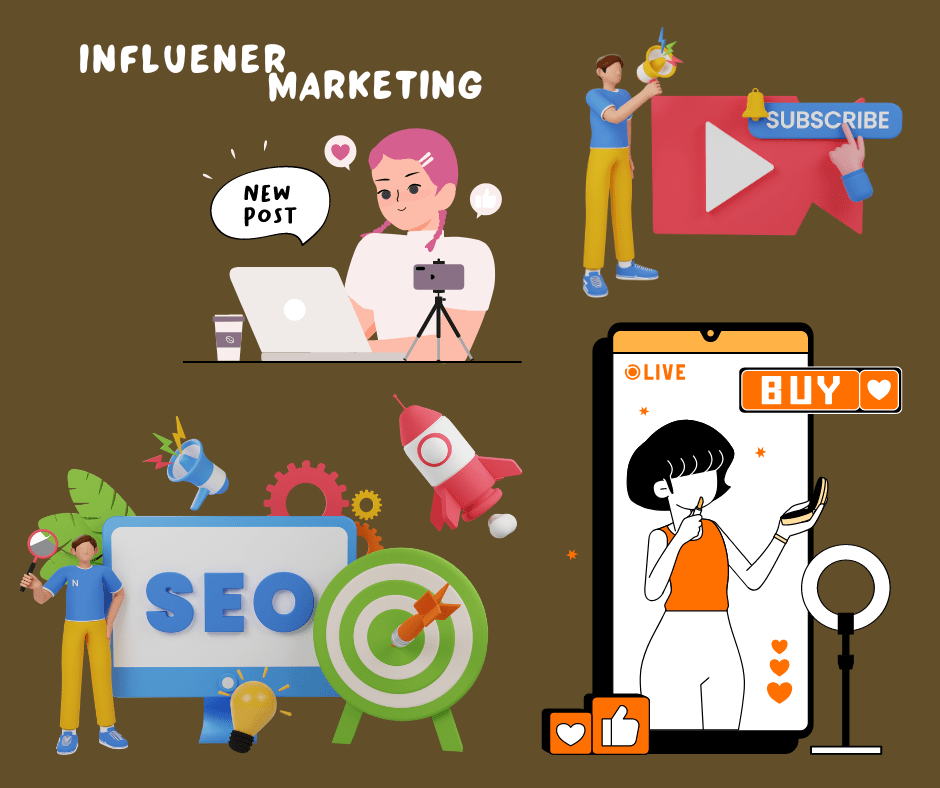What is Psychology of Emotions-
Emotions are complex psychological phenomena that involve both cognitive and behavioral changes. Our emotions are influenced by our thoughts, feelings, and experiences, and they can have a significant impact on our behavior.

The psychology of emotion is a vast and complex field of study. Psychologists have been studying emotions for centuries, and there is still much that we do not know about them.
However, we have learned a great deal about the different types of emotions, how they are processed in the brain, and how they influence our behavior.
Table of Contents

The power to influence-
The power to influence is a complex and multifaceted concept. However, by understanding the different sources of power and the factors that influence persuasion, you can become more effective at using your power to change the way others think or behave.
How to Use the Power of Influence-
The most effective way to use power to influence others depends on the situation and the people involved. However, some general tips include:
- Be clear about your goals. What do you want to achieve by influencing others?
- Understand the other person’s needs and interests. What are they motivated by?
- Build rapport and trust. People are more likely to be influenced by those they trust.
- Be persuasive. Use logic, evidence, and emotional appeals to make your case.
- Be patient. It takes time to build influence.
Application of Psychology of Emotions in Influencer Marketing-

From a psychological perspective, there are several factors that can influence how people are persuaded. These include:
- The source of the persuasion. People are more likely to be persuaded by someone they trust and respect.
- The message itself. The message should be clear, concise, and relevant to the audience.
- The audience. People are more likely to be persuaded if they are open to the message and if they believe that the message is credible.
- The context. The setting in which the persuasion takes place can also influence how people are persuaded.
Some of the key findings in the psychology of emotion include:

- Emotions are universal, All humans experience the same basic emotions, such as happiness, sadness, anger, fear, and surprise.
- Emotions are adaptive– They help us to survive and thrive in our environment.
- Emotions are contagious– We can “catch” feelings from other people.
- Emotions can be manipulated as well– Advertisers and politicians often use emotional appeals to influence our behavior.
- Emotions can be managed– The most important point is, we can learn to control our emotions and use them to our advantage.
However, there are some questions that psychologists are still trying to answer about emotions, and one such question is related to the topic-
Can we create artificial emotions?

Artificial emotions can be instigated in humans through a variety of ways, including:
Direct manipulation: This involves using the psychology of emotions to directly stimulate the brain or nervous system to produce emotional responses. For example, researchers have developed brain-computer interfaces that can control emotions by stimulating the amygdala, a brain region involved in emotion.

Indirect manipulation: This involves using the psychology of emotions to indirectly influence emotions by manipulating the environment or the user’s thoughts and beliefs. For example, advertisers often use emotional appeals to influence our behavior.

Imitation: This involves using the psychology of emotions to create artificial agents that can mimic human emotions. For example, chatbots can be programmed to display emotions such as happiness, sadness, or anger.

Is instigating artificial emotions good or bad-
Whether artificial emotions are good or bad depends on how they are used.
On the one hand, artificial emotions could be used to improve our lives in many ways.
For example, they could be used to develop new therapeutic treatments for mental health disorders, to create more user-friendly and engaging interfaces, or to make machines that are more helpful and supportive.

On the other hand, artificial emotions could also be used to manipulate or deceive people.
For example, they could be used to create propaganda or to sell products that people do not need.
It is important to carefully consider the potential risks and benefits of artificial emotions before this technology is developed further.
Ultimately, the question of whether artificial emotions are good or bad is a complex one that will need to be debated by society as a whole.
There is no easy answer, and the answer may vary depending on the specific applications of this technology.
The psychology of emotion is a rapidly growing field, and there is still much that we do not know.
However, the research that has been done so far has given us a much better understanding of these complex and fascinating phenomena.
Use of Emotions in Influencer Marketing-

Now coming to the topic, Influencer marketing is a powerful tool that can be used to persuade people to buy products or services.
Let’s discuss, how does it work? What are the psychological principles that underlie influencer marketing?
In this blog post, we will explore the psychology of persuasion and how it can be applied to influencer marketing. We will discuss the following topics:
- The role of emotions in persuasion
- The impact of FOMO
- The power of social proof
- The importance of trust
- How to choose the right influencers
- How to create effective influencer marketing campaigns
1. The Role of Emotions in Understanding the Influencer Market-

The feel-good effect- Emotions play a crucial role in persuasion. When we are feeling positive emotions, such as joy, excitement, or inspiration, we are more likely to be persuaded by a message.
Positive emotions make us more open to new information and more likely to act on it.
Influencer marketing- can be very effective at tapping into our emotions. When we see an influencer that we trust and admire promoting a product or service, we are more likely to be persuaded to buy it.
This is because we associate the product or service with the positive feelings that we have for the influencer.
2. The Impact of FOMO

FOMO, or Fear of Missing Out, is a psychological phenomenon that has become increasingly prevalent in the digital age.
When we see others enjoying something that we are not, we may feel a sense of FOMO, which can motivate us to take action.
Influencer marketing can be very effective at tapping into our FOMO. When we see an influencer that we follow promoting a product or service that is in high demand, we may feel a sense of FOMO and be more likely to buy it. This is because we don’t want to miss out on something that everyone else is enjoying.
3. The Power of Social Proof

Social proof is the idea that we are more likely to do something if we see that other people are doing it. This is because we want to fit in and be seen as part of the group.
Influencer marketing can effectively tap into our need for social proof. When we see an influencer that we trust and admire promoting a product or service, we are more likely to buy it because we know that other people are buying it too.
4. The Importance of Trust

Trust is essential for persuasion. If we don’t trust the person who is trying to persuade us, we are less likely to be persuaded by them.
Influencer marketing is most effective when the influencer is someone that we trust. This is because we are more likely to believe the information that they are sharing with us.
5. How to Choose the Right Influencers–

- Define your target audience. Who are you trying to reach with your influencer marketing campaign? What are their demographics, interests, and pain points? Once you know who your target audience is, you can start to look for influencers who have a similar audience.
- Identify your goals. What do you want to achieve with your influencer marketing campaign? Do you want to increase brand awareness, generate leads, or drive sales? Your goals will help you narrow down your choices and select influencers who are a good fit.
- Find influencers who are relevant to your brand. This means finding influencers who create content that is aligned with your brand’s values and messaging. It’s also important to make sure that the influencer’s audience is interested in the products or services you offer.
- Consider the influencer’s reach and engagement. The size of an influencer’s following is not the only factor to consider. You also need to look at their engagement rate. This will give you an idea of how well their followers interact with their content.
- Check the influencer’s authenticity. Do they seem genuine and authentic in their posts? Do they have a positive reputation? It’s important to work with influencers who are trustworthy and who your target audience will find credible.
6. How to Create Effective Influencer Marketing Campaigns–
To create effective influencer marketing campaigns, you need to create engaging and informative content. You should also make sure that your campaigns are targeted to your specific audience.
Here are some tips for creating effective influencer marketing campaigns:
- Use high-quality visuals
- Write engaging and informative copy
- Target your campaigns to your specific audience
- Track the results of your campaigns so that you can see what is working and what is not
Conclusion–
Here are some additional points about the power of influence in a modern perspective:
- The rise of social media has made it easier for people to influence others.
- The increasing diversity of the workforce has made it more important for leaders to be able to influence people from different backgrounds.
- The need for collaboration has made it more important for people to be able to influence others in a positive way.
The power to influence is a valuable skill that can be used for good or for bad. It is important to use this power responsibly and ethically.
Influencer marketing is a powerful tool that can be used to persuade people to buy products or services.
By understanding the psychology of persuasion, you can create effective influencer marketing campaigns that will reach your target audience and achieve your marketing goals.
I hope this blog post is helpful. Please let me know if you have any other suggestions & feedbacks.



2 Comments
P. Kishore · September 8, 2023 at 1:18 pm
What an interesting article, well written and explained with examples.
Priyank · September 11, 2023 at 6:11 pm
Nice well composed article, good points.